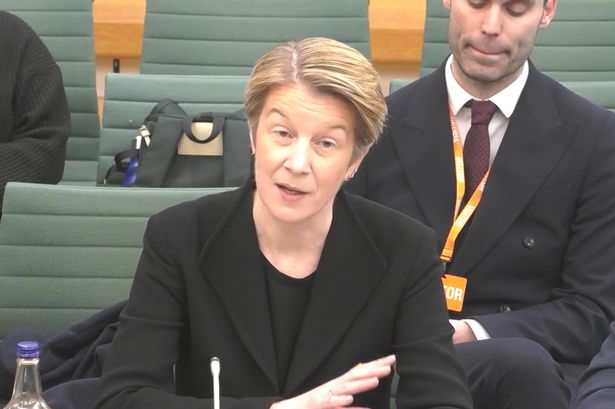The cross-party commission of MPs’ report paints a stark picture of a National Health Service (NHS) struggling to meet the demands of a growing and aging population. The central issue is the NHS’s failure to deliver on its promise of community-based care, leading to an unsustainable burden on hospitals. This failure stems from a complex interplay of factors, including chronic underfunding of primary and community care services, workforce shortages across the entire NHS spectrum, and a lack of integrated care pathways that effectively connect different parts of the system. Consequently, patients who could be treated safely and effectively closer to home are instead forced to seek care at already overstretched hospitals, creating a bottleneck effect that impacts the entire healthcare system. This not only leads to longer wait times for emergency care but also delays essential elective procedures, causing immense stress and hardship for patients and their families.
The underfunding of primary and community care services has resulted in a diminished capacity to provide preventative care and manage chronic conditions within local communities. This weakens the first line of defense against escalating health issues and drives more patients towards hospital settings. General practitioners (GPs) are overwhelmed by increasing workloads and administrative burdens, limiting their ability to provide comprehensive and proactive care. Community nursing teams are similarly stretched thin, struggling to provide adequate support for patients at home, leading to avoidable hospital admissions. The lack of investment in community-based mental health services further exacerbates the problem, as individuals experiencing mental health crises often end up in emergency departments due to a lack of alternative options.
Compounding the funding issues is a severe workforce shortage across the NHS, impacting all levels of care, from GPs and nurses to specialist consultants. This shortage is driven by a combination of factors, including an aging workforce, increasing workload pressures, and a lack of competitive salaries and working conditions. The shortage of staff in community settings directly impacts the capacity to provide timely and effective care, further contributing to the overwhelming of hospitals. Moreover, the lack of specialist staff in hospitals further exacerbates delays in diagnosis and treatment, prolonging hospital stays and adding to the overall strain on the system.
The lack of integrated care pathways, which seamlessly connect different parts of the NHS, creates further obstacles to delivering community-based care. Fragmented communication and information sharing between hospitals, GPs, and community services lead to inefficiencies and delays in patient care. Patients often experience a disjointed journey through the system, lacking clear guidance and support as they navigate different services. This lack of coordination can lead to unnecessary hospital admissions, duplicated tests and procedures, and a poorer overall patient experience. The absence of a unified approach to patient care hinders the effective management of complex health conditions and contributes to the overwhelming of hospitals.
The consequence of these combined factors is a healthcare system in crisis, characterized by overcrowded emergency departments, long waiting lists for elective procedures, and a demoralized workforce struggling to cope with the relentless pressure. The impact on patients is significant, with individuals facing extended delays in receiving necessary care, leading to increased anxiety, suffering, and potentially worsened health outcomes. The strain on hospital staff is equally significant, contributing to burnout, high turnover rates, and a decline in morale, further jeopardizing the quality and safety of patient care. The current situation is unsustainable and demands urgent action to address the underlying systemic issues.
The cross-party commission’s findings underscore the urgent need for a fundamental shift in the NHS’s approach to healthcare delivery. Increased investment in primary and community care services is essential to strengthen the foundation of the healthcare system and prevent unnecessary hospital admissions. Addressing the workforce crisis through improved recruitment and retention strategies is crucial to ensure that there are enough skilled professionals to deliver high-quality care. Developing integrated care pathways that facilitate seamless communication and collaboration between different parts of the NHS will enable a more coordinated and efficient approach to patient care. These reforms are essential not only to alleviate the immediate pressure on hospitals but also to build a more resilient and sustainable healthcare system for the future.














